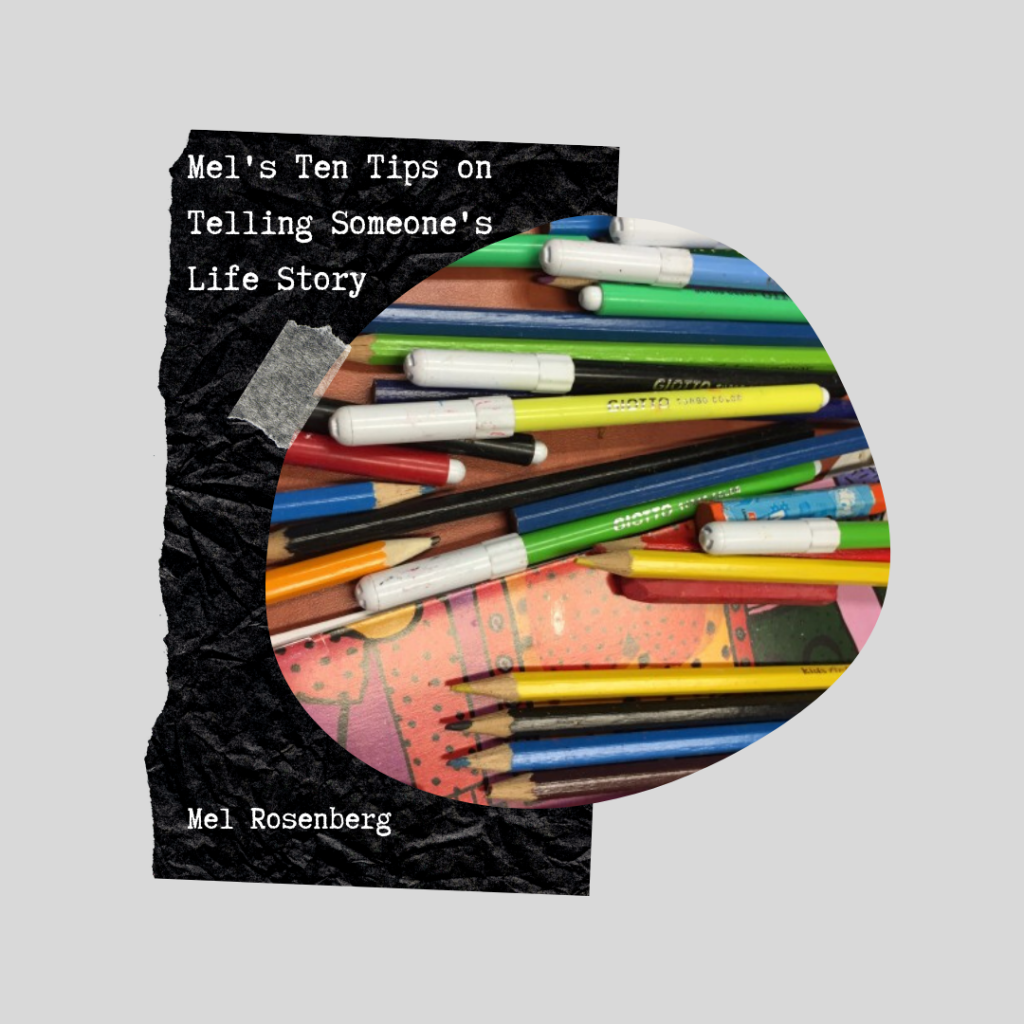
1. Ignore the mundane
So you’re going to write a story about someone’s life.
Most of our lives are boring. We sleep during the night. We get up in the morning, brush our teeth, shower or bathe, go to school or to work, come back home, eat, do our chores and homework, watch TV and go to sleep.
These events are boring. They are everyday events. They are routine. They are not unique or exciting.
Suppose you interview someone about his life and this is what they tell you.
“I was born in Winnipeg. I went to school. I got married. I have two children. I go to work at seven in the morning. I like to eat bananas. I have hay fever.”
Nobody will read this story. Unless you pay them. Even the bots of Google will yawn as they crawl over the text.
What you want to write about are the exciting things. The special events. The extraordinary.
So asking a mundane question, such as “Where were you born” may not the best way to start your interview. Unless the person you are interviewing was born in Pearl Harbor. On December 7th, 1941.
On the other hand, if your storyteller is talking about things that used to happen in the distant past (like riding in a carriage), or happened in a faraway land, that could be exciting too.

2. Concentrate on the Special
What makes a story about someone’s life interesting?
A boring story is just boring. But an interesting story
- IS EXCITING, MAGICAL, EXTRAORDINARY
- INSPIRES YOU
- IS FULL OF SURPRISES AND SUSPENSE
- MAKES YOU WANT TO LAUGH, CRY OR BOTH
- MAKES YOU WANT TO MEET THIS PERSON, TO LEARN MORE ABOUT HIM (or HER), TO LEARN FROM HIM
So the second tip is “Look for the special and you are going to find it. Everyone has one or more amazing stories.” You are now on your quest for the amazing story.

3. Do Some Research
If a detective wants to find the missing jewels, or the archaeologist wants to discover the hidden treasure, it helps if you know where to look and where to start digging.
If you can find out some details about the life of the person you are interviewing before you meet him or her, this is a big advantage. First, it helps you ask better questions. Second, it shows that you care about the person and his life. If someone interviews me about my life or career and knows some details to begin with, I am flattered and much more inclined to cooperate.
Perhaps the person you are interviewing is someone in your family. A grandparent, perhaps. What do you really know about their lives? Can you ask your parents for a few interesting details about their parents?
Let’s say that your grandparent comes from Transylvania. Hey, isn’t that where Dracula and the vampires come from? Maybe Frankenstein too?
Any information you can get from the internet or your family is bound to help you. At the very least, it will make you more knowledgeable and more interested in the life you are going to write about.
So tip number three is “Do some background research on the person you are going to interview. This will help you find out where the jewels might be. Your questions will be more intelligent and more focused. And it will help whet your appetite to go looking for them.”
4. Connect with the person and the story
Professional biographers usually choose who they want to write about. They write about people that they are genuinely passionate about. Abraham Lincoln was an intriguing person, but let’s face it. If you don’t give a hoot about him, your story will be distant and the reader won’t be moved. Thankfully, lots of people have written great biographies of Lincoln, so you don’t have to bother (unless it’s a class assignment). On the other hand, you may be the ONLY biographer that will ever tell the story of your grandparent, or the stranger that you are interviewing. That person may not be around for a long time, but your story will live on for generations to come. Be passionate about your biography. It’s not a chore. It’s a privilege. A challenge. A mission.

When you meet the person you are interviewing, it’s important to make a connection. Try to find a common ground. This may not be easy if the person you are interviewing is sixty years older than you. On the other hand, you might have common interests, hobbies. You might be able to play a game of chess or discuss a sport that you like. And even if you don’t, making a connection can be as easy as giving the person a great big smile. A genuine one. It’s that easy.

5. Ask interesting questions
If you have done research on the person you are interviewing, you may have already uncovered some interesting subjects to discuss. Has this person had to deal with hardship and challenges in his life? How did he overcome it? What lessons has he learned? Is he optimistic or pessimistic about the future. Is there any message that he wants to share with future generations?
Here are some more questions to ask that can help you find “the jewels”.
If you could meet someone from your past today, who would it be? What would you ask?
What do you regret most in your life? Would you have done something differently?
What are you most proud of? What are you most ashamed of? Who would you like to apologize to? What would you tell that person?
If you could say thank you to three people, who would they be and why?
Is there something that you have never told anyone? Would you like to share it now?
6. Follow your nose
During the interview the person will tell you something really interesting. Don’t move on to another subject. Follow up on this line of questioning. Ask for more detail. When did this happen? How old were you? How did you feel? Did it affect the rest of your life? How? Why?
The more personal your story is, the more likely your audience is to like it!!
7. Record the interview
If you can, I suggest that you record the interviews. Newspaper journalists do it all the time. You can also write down notes during the interview as long as you do a lot of listening while you write. You can also make a video of the interview!!!
Writing your story is not the same as recording the interview. It is taking the interview and turning it into a story. You don’t have to begin at the beginning of the interview and you don’t have to end at the end.
Professional writers can write anytime. Often they have deadlines and are under pressure. Some of them manage to write extremely well in such circumstances. However for most of us, writing has to be fun in order to be good. Don’t write because you have to. Write because you want to. And when you want to.
Pour yourself a glass of a drink that you like, whether it’s milk shake or tea or something else. Sit in your favorite chair or coffee house. Go over the interview. And then write your heart out. Out of love. Out of passion. Turn it into an amazing story.
8. Find a good title for your story
People tend to read stories that have good titles. Can you come up with one?
“The Man Who Came Back from Hell” is a good title for someone who survived an ordeal.
“How Ten Minutes Changed the Life of Patricia Smith” is a good title. If that is her name.
Oh, and try to come up with a nifty opening sentence. Everything else will follow. Trust me.
9. Be your own editor
This is the unkindest cut of all. Professional biographers rely on content editors to go over their story and chop out parts that are less relevant, less interesting, take the reader away from the focus of the story, etc.
But we have to be our own editors. And this is a major problem because all writers I know are in love with what they write. Every word of it. Every single word of it.
Every story can be improved by leaving out the parts which are less interesting or which do not help you tell the story. We have to be unkind to ourselves and cut them out.
10. The Most Important Thing of All
If you write a really good life story, a magical thing will happen. Your reader will have strong feelings for the person you are writing about. The reader will sympathize with his predicament, applaud his successes, regrets his failures, feels the same emotions, the fear, the elation, the sadness. This is called feeling “empathy”.
This tip is the most important and elusive one. I hope the first nine tips will help you achieve it. If not, write to me and I’ll be glad to try to help.
Thanks
I’d like to thank Ofra Israeli for suggesting this booklet and giving me helpful advice. Ofra runs a program called “G2G” in which children in 300 schools interview their grandparents and other seniors about their lives as part of their studies.

Published: Jun 25, 2015
Latest Revision: May 21, 2020
Ourboox Unique Identifier: OB-60147
Copyright © 2015








